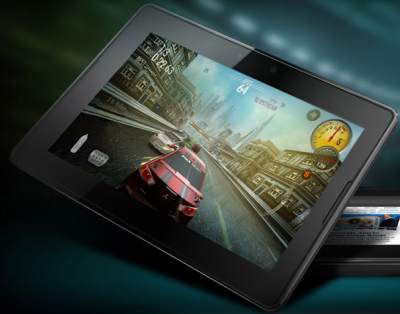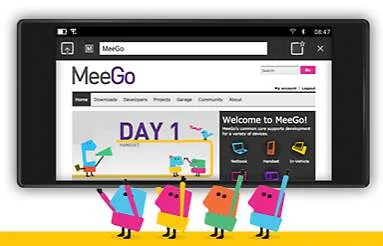We recently saw no less than a half dozen tablet announcements, and it seems as if everyone is going have one.
Feels a little like the ebook mania that crescendoed at CES and culminated into a yawn at Computex. We found over a dozen at those two events, and yet there are only a few on the market.
Tablets, which first came on the PC scene in 2000 and at CES 2001 Microsoft made the term popular as a concept in its presentations. The Tablet PC market was invigorated by Apple through the introduction of the iPad device in 2010, and it seemed as if the world discovered touch screens.

IBM began building the first touch screens in the late 1960s, and, in 1972, Control Data released the PLATO IV computer, a terminal used for educational purposes that employed single-touch points.
Still, some people think Multi-touch technology began in 1982, when the University of Toronto’s Input Research Group developed the first human-input multi-touch system.
In late September this year BlackBerry manufacturer Research in Motion (RIM) announced its plans for a tablet and unveiled the PlayBook, which was scheduled to go on sale in early 2011.
RIM joined the ranks of Dell, Samsung and HP, which has set their sights on winning a chunk of what HP predicted could be a $40 billion within a few years. And Apple is leading the parade with the iPad which sold over 4.5 million units at the end of September. And is forecasted to exceed 21 million by the end of 2011.

Apple’s success has triggered a frenzy of introductions with many different screen sizes, different operating systems and various applications.
Even ebook king Amazon is rumored to be developing a tablet device that will use Google’s popular Android operating system (and thus becoming its best own competitor?)
It’s not clear where RIM fits in all this, after all tablets are for the most part consumer toys. The serious tablet users in hospitals, body & fender shops, grocery stores, and insurance companies don’t add up to 5 million and want rugged systems with Exchange compatible and secure operating systems. Toshiba owns a big hunk of that market.
RIM thinks it edge is in advanced security features, enterprise support and maybe multimedia too.
Early reviews of the RIM PlayBook criticized it because it only had Wi-Fi connectivity and required used to link their tablets to a BlackBerry device. Maybe the company thought it would be such a compelling device it would stimulate Blackberry sales – otherwise their TAM is a subset of current Blackberry users. And RIM didn’t have an app store story to tell.
The PlayBook is actually RIMs second run at the tablet market, it’s first being the briefly noted (and seen) BlackPad. Apparently, due to a buggy Marvell processor, RIM was forced to scratch the debut of its long-awaited BlackPad, last week. So, unable to show developers a system (with the new QNX operating system) they could develop on, RIM rolled the PlayBook which uses a TI OMAP processor.

Still ARM and still QNX compatible, but not quite the same as an Armada. That little switcheroo will probably delay the launch of the RIM tablet till 2H 2011, and by then another half dozen companies will be in the market with ultra cheapo models from the tablet factor in the valley of Shenzhen.
What do we think?
Basically, we told you that so we could tell you this. The iPad killer tablets have been slow to arrive and there are a variety of factors blamed for the state of affairs but operating systems stands out as a major problem. Blackberry is developing its own operating system for the Playbook. The company says the new OS will eventually replace the company’s current BlackBerry smartphone operating system across all products. It’s at least possible that the challenges of developing a new OS can also be delaying the arrival of the Playbook.
The tablets that are being designed for Android have been delayed while Google works on the Gingerbread version of Android designed specifically for tablets. LG has announced that its tablet will be delayed until next year because the operating system isn’t read. So far, Samsung and Toshiba are plowing forward using the current generation of Android.
HP has had its problems getting the WebOS into fighting trim for tablets or new phones. HP’s senior vice president Eric Cador told Reuters “you’ll see us coming next year with new phones.” That’s it, no real news about a tablet and it is generally assumed that the Windows 7 Slate tablet promised by HP last year at CES is not going to happen.

Meanwhile, Intel is positioning it MeeGo operating system for devices including phones and tablets. MeeGo devices are expected in early 2011 and will appear first in netbooks with phones and tablets to follow. Intel’s vision is similar to that of Google for the Google TV.
They see it as an open system enabling devices to work together. At a developer event in San Francisco, Intel’s head of open source strategy, Ram Peddibhotla emphasized MeeGo’s ability to link multiple devices together so that content could be transferred from one device to another.
“MeeGo,” he said, “is ground-up designed and targeted at multiple devices: netbooks, phones, and TV devices.”
What to draw from all this? Wait for 2011.






